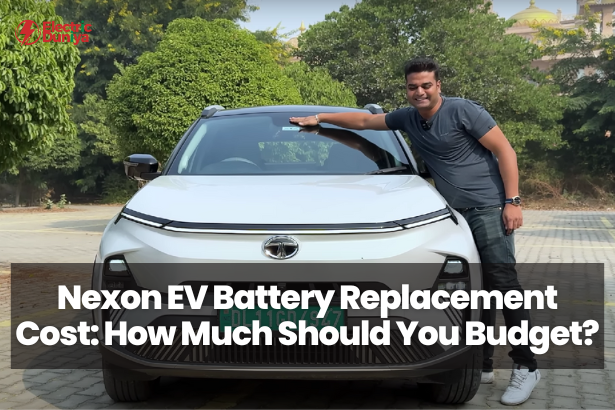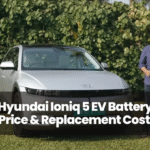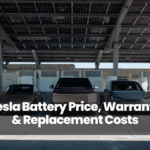I own a base version of the Nexon EV. I find it very relaxing and commuting for day-to-day commuting and even long drives during weekends.
I’ve often thought about what it would cost if I ever had to replace the battery.
After talking to a few EV experts and doing some research on my own, I’ve found some useful tips about the Nexon EV battery replacement cost.
End of this blog, you’ll get a good understanding of the battery type, how long it lasts, the cost of replacement, and when to replace it.
This will help you stay ahead in maintaining your EV battery and planning your budget in the future.
Tata Nexon EV Battery Type
The Tata Nexon EV uses a lithium-ion battery pack, which is the most common type in electric vehicles today.
The battery size depends on which model you have but the Nexon EV Prime comes with a 30.2 kWh battery and the Nexon EV Max has a larger 40.5 kWh battery.
What I’ve learned is that the battery is liquid-cooled using a water and ethylene glycol mix.
This system keeps the battery at the right temperature (between 0°C and 50°C), so it works well whether it’s hot or cold outside.
The lifespan of a battery depends on things like how often you charge it and use your car in daily life.
In most cases, these batteries can last 8-10 years or handle about 1,000 to 2,000 charge cycles before needing replacement.
Tata Nexon EV Battery Replacement Cost
As an expert told me the cost of Tata Nexon EV battery replacement depends on several factors, including the battery size and where you’re getting it replaced.
Based on my research and conversations, the average cost to replace a Nexon EV battery can range between ₹2.5 lakh to ₹5 lakh.
This includes the cost of the battery and labour charges for installation. Make sure that these numbers can change depending on your specific situation.
One thing that gives me peace of mind is Tata Motors offers an 8-year or 1,60,000 km warranty on the Nexon EV’s battery.
If anything goes wrong within this time, they’ll replace the battery for free, which takes a lot of worry off your shoulders.
Additional Costs
At the time of the replacement process, you may also need additional repairs. There can be problems with the battery management system or related components.
After replacing the battery of the Nexon EV, your vehicle may need software updates for compatibility and optimal performance. This also leads to additional costs.
You can set aside a specific fund for battery replacement costs in the days to come.
Keep a budget of around Rs 2,50,000 to cover the minimum estimated cost.
Make sure that the warranty of the Tata Nexon EV is up to date. See if your insurance policy covers battery replacement.
When to Replace the Battery
After discussing with an expert, I learned that the car will show a few signs after 8-10 years or before, and that’s when you should start thinking about replacing the Tata Nexon EV battery.
You can learn about these signs below:👇
✅ If your Nexon EV isn’t covering the distance it used to, it might be a sign the battery is losing capacity and could need replacement.
✅ If you see the battery not charging or the level dropping quickly for no reason, it could mean there’s an issue with the battery or its management system.
✅ If your battery fails while it’s still under warranty, Tata will replace it without charging you.
✅ In rare cases, things like accidents, water damage, or exposure to extreme temperatures can harm the battery, leading to a replacement.
✅ Even with the best care, all batteries eventually die. After about 8-10 years or 1,000 to 2,000 charge cycles, you may need to replace yours.
Final Thoughts
In this blog, I have tried to make you aware of some aspects. You may only be in trouble in the budget aspect if you do not keep reserved money and follow guidelines for battery safety.
From my own experience with the Nexon EV, keeping an eye on performance and following the driving practices will help you enjoy your EV for years to come.
So, with this guide, you can drive your Nexon EV confidently, knowing you’re well-prepared for the replacement of any battery-related concerns.







